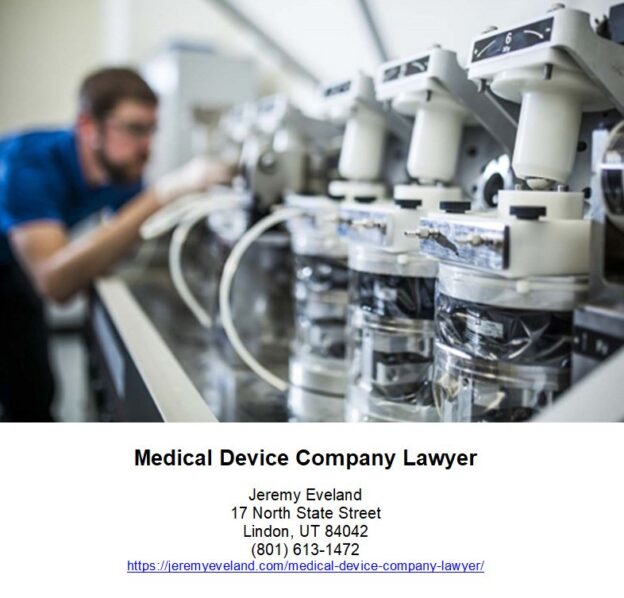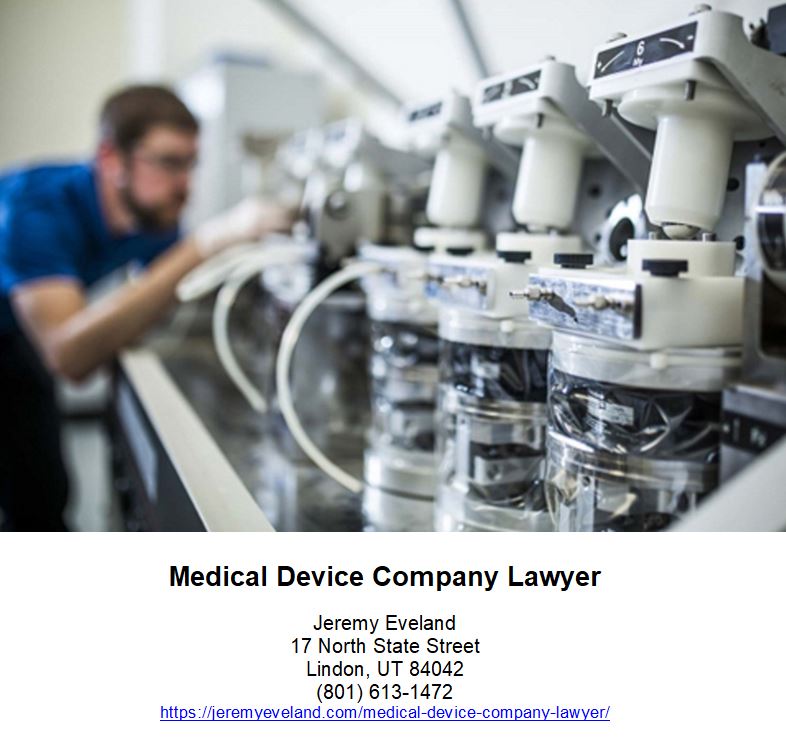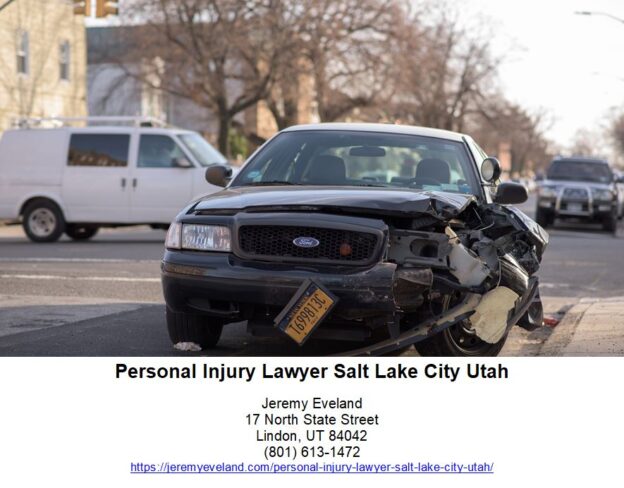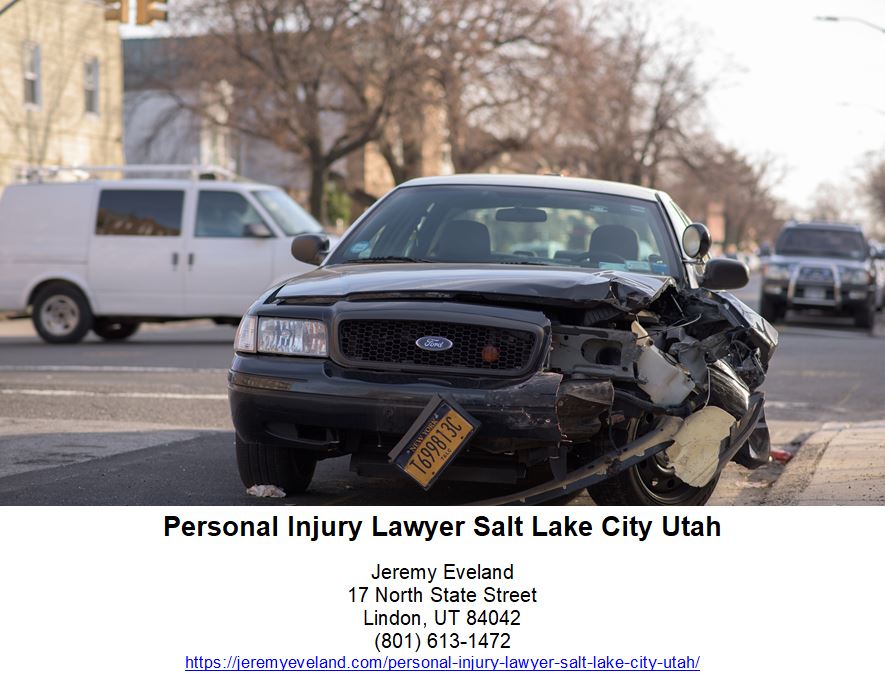Utah’s food laws and regulations are essential knowledge for any business owner in the food industry. Complying with these laws is crucial to ensure the safety and well-being of consumers, as well as the success and reputation of your business. From obtaining licenses and permits to understanding labeling requirements and food handler certifications, navigating Utah’s intricate legal framework can be daunting. However, by familiarizing yourself with these laws and partnering with a knowledgeable business lawyer, you can confidently navigate the complexities of Utah’s food industry and ensure compliance with all relevant regulations.

Overview of Utah’s Food Laws and Regulations
Utah’s food laws and regulations serve to ensure the safety and quality of food products sold and consumed within the state. The regulations are designed to prevent foodborne illnesses, protect consumers from misleading labeling, and maintain high standards of hygiene and sanitation in food facilities. Understanding and complying with these laws is essential for businesses operating in the food industry in Utah.
Introduction to Utah’s food laws
Utah has implemented a comprehensive set of food laws that cover various aspects of the food industry, including licensing, food safety standards, labeling requirements, inspections, packaging and storage regulations, facility design and sanitation, and special requirements for certain foods. These laws are established by regulatory agencies to safeguard public health and promote fair practices in the food industry.
Importance of complying with food regulations
Complying with food regulations is crucial for food businesses in Utah to protect their customers’ health and well-being, maintain a positive reputation, and avoid legal consequences. Non-compliance can lead to foodborne illnesses, consumer complaints, product recalls, or even legal penalties. By following the established food laws and regulations, businesses can demonstrate their commitment to safety and quality, thus gaining the trust of their customers and thriving in a competitive market.
Key regulatory agencies in Utah
Utah’s food laws and regulations are enforced by several regulatory agencies responsible for different aspects of food safety and consumer protection. The primary agencies involved include:
- Department of Agriculture and Food (UDAF): UDAF is responsible for ensuring the safety of food and agricultural products. It oversees licensing, inspections, and compliance for food businesses in Utah.
- Department of Health (UDOH): UDOH is responsible for public health and safety. It enforces regulations related to food safety, handling, and labeling.
- County Health Departments: Local health departments play a vital role in ensuring compliance with food laws at the county level. They conduct inspections, provide guidance to businesses, and address public health concerns.
Licensing and Permits
Types of licenses required for food businesses
Food businesses in Utah need to obtain specific licenses based on their activities and the types of products they handle. The main licenses required include:
-
Food service license: This license is necessary for establishments that handle, prepare, or serve food for immediate consumption.
-
Retail food establishment license: Retail food businesses, such as grocery stores, convenience stores, and food markets, need this license to sell food products for off-site consumption.
-
Catering license: This license is required for businesses that provide food services at events or parties.
-
Food manufacturer license: Food manufacturers, including processors and packagers, must obtain this license to produce food products for distribution.
Application process for obtaining a license
To obtain a license for a food business in Utah, the business owner must submit an application to the Utah Department of Agriculture and Food (UDAF) or the local health department, depending on the type of license required. The application typically requires information about the business, its location, food handling processes, and compliance with relevant regulations.
After submitting the application, an inspection of the premises may be conducted to ensure compliance with food safety and sanitation standards. Once all requirements are met, the license will be issued.
Renewal and fees
Food licenses in Utah are typically valid for one year and must be renewed annually. The renewal process involves submitting an updated application and paying the required fees. The fees vary depending on the type and size of the food business. It is important to renew licenses on time to avoid any disruptions in operations and to remain in compliance with the law.
Food Safety Standards
Utah’s food safety guidelines
Utah’s food safety guidelines are based on the principles of the Hazard Analysis and Critical Control Points (HACCP) system, which is a preventive approach to food safety. The guidelines cover various aspects, including personal hygiene, food handling and storage, cleaning and sanitizing procedures, equipment maintenance, and pest control. Adhering to these guidelines is essential to prevent foodborne illnesses and ensure the safety of food products.
Hazard Analysis and Critical Control Points (HACCP)
The HACCP system is a risk-based approach to food safety management. It involves identifying and analyzing potential hazards in food production processes and implementing control measures to mitigate these risks. Food businesses in Utah are encouraged to develop and implement HACCP plans tailored to their specific operations. These plans should outline critical control points, monitoring procedures, corrective actions, and verification activities to ensure the safety of their food products.
Food handling and storage requirements
Utah’s food laws establish specific requirements for food handling and storage to prevent contamination, preserve quality, and maintain food safety. These requirements include proper temperature control, separation of various food types, appropriate cleaning and sanitizing practices, effective inventory management, and safe handling practices throughout the food supply chain. Adhering to these requirements is essential to prevent food spoilage, maintain product integrity, and protect consumers’ health.
Food Labeling Requirements
Mandatory labeling information
Utah’s food labeling requirements mandate that certain information be included on food product labels to provide essential information to consumers and prevent misleading claims. Mandatory labeling information generally includes the product name, net weight or volume, ingredient list, allergen information, nutrition facts, manufacturer or distributor information, and any required warnings or disclaimers. It is crucial for food businesses to accurately label their products to ensure transparency and compliance with the law.
Nutrition labeling
For packaged food products, nutrition labeling is required to provide consumers with information about the nutritional content of the product. This includes the number of calories, fat, carbohydrates, protein, fiber, and other nutrients per serving. The labeling must follow the guidelines set by the U.S. Food and Drug Administration (FDA) and be presented in a standardized format to enable consumers to make informed dietary choices.
Allergen labeling
Utah’s food labeling requirements also mandate the clear disclosure of common allergens present in food products. These allergens include peanuts, tree nuts, milk, eggs, fish, crustacean shellfish, wheat, and soybeans. Businesses must include this information on the product label to help consumers with allergies avoid potential health risks. Proper allergen labeling is crucial to prevent allergic reactions and ensure consumer safety.
Inspections and Enforcement
Frequency and purpose of inspections
Food establishments in Utah are subject to regular inspections conducted by the Utah Department of Agriculture and Food (UDAF) and local health departments. The frequency of inspections may vary depending on the type of establishment, its size, and any previous compliance history. Inspections serve the purpose of evaluating compliance with food safety regulations, identifying potential hazards or violations, providing guidance to businesses, and ensuring the protection of public health.
Consequences of non-compliance
Non-compliance with food laws and regulations can have serious consequences for businesses. It can result in health risks to consumers, negative publicity, financial losses due to product recalls or legal actions, and damage to the business’s reputation. Additionally, non-compliant businesses may face penalties, fines, suspension or revocation of licenses, and even legal liabilities. It is essential for food businesses to prioritize compliance to maintain their operations and protect their customers’ well-being.
Enforcement actions and penalties
Enforcement actions can be taken by regulatory agencies, such as the Utah Department of Agriculture and Food (UDAF) and local health departments, against non-compliant food businesses. These actions can include issuing warning letters, imposing fines or penalties, suspending or revoking licenses, initiating legal proceedings, or even pursuing criminal charges in severe cases. The severity of the enforcement action depends on the nature and extent of the violation. It is crucial for businesses to understand and comply with the regulations to avoid such consequences.
Packaging and Storage Regulations
Packaging materials and requirements
Utah’s food laws mandate that food products be packaged in materials that are safe, hygienic, and suitable for the intended use. Packaging materials must not contaminate the food or pose any health risks. Additionally, packaging must be robust enough to protect the product from physical damage, moisture, and other environmental factors. Businesses should ensure that their packaging materials meet the required standards to maintain product quality and safety.
Correct storage temperatures
Proper storage temperatures are vital for maintaining the quality and safety of food products. Utah’s food laws specify temperature requirements for different types of food, covering both refrigerated and frozen storage. Compliance with these temperature requirements helps prevent bacterial growth, spoilage, and the risk of foodborne illnesses. It is important for food businesses to monitor and maintain appropriate storage temperatures to ensure the preservation of product integrity.
Packaging and labeling for bulk food
Utah’s food laws also provide specific guidelines for packaging and labeling bulk food products, such as those sold in self-serve bins or dispensers. The packaging should be durable, tamper-resistant, and able to protect the food from contamination. Additionally, clear labeling is essential to provide customers with information about the product, including its identity, quantity, and any necessary warnings or allergen information. Proper packaging and labeling of bulk food products enhance transparency and enable consumers to make informed choices.
Food Facility Design and Sanitation
Design and layout of food facilities
Utah’s food laws outline requirements for the design and layout of food facilities to ensure safe and hygienic operations. These requirements cover aspects such as the construction materials, plumbing and drainage systems, lighting, ventilation, waste management, and accessibility. Following these guidelines during the design and construction phase helps create functional and compliant facilities that minimize the risk of contamination, facilitate proper workflow, and prioritize employee and consumer safety.
Sanitation requirements and procedures
Maintaining proper sanitation practices is crucial for food facilities in Utah to prevent contamination, ensure food safety, and comply with regulations. Sanitation requirements include regular cleaning and sanitizing of equipment, utensils, and surfaces, proper wastewater disposal, pest control measures, and personal hygiene practices for employees. Implementing effective sanitation procedures helps reduce the risk of foodborne illnesses, maintain a clean and safe environment, and protect the health of employees and consumers.
Employee hygiene
Utah’s food laws emphasize the importance of employee hygiene in food facilities. Employees are required to follow specific hygiene practices, such as regular handwashing, wearing clean and protective clothing, and avoiding behaviors that could contaminate food. Food businesses should provide adequate training and supervision to ensure that employees understand and adhere to these hygiene practices. Employee hygiene is critical for preventing foodborne illnesses and maintaining food safety standards.
Special Requirements for Certain Foods
Specific regulations for meat and poultry products
Utah’s food laws have specific regulations governing the processing, handling, labeling, and sale of meat and poultry products. These regulations are designed to ensure quality, prevent contamination, and protect consumers. Compliance with these regulations involves meeting standards for proper storage temperatures, appropriate processing methods, accurate labeling, and the prevention of cross-contamination. Meat and poultry businesses must understand and follow these regulations to ensure the safety and integrity of their products.
Requirements for dairy products
Dairy products are subject to specific requirements and regulations to maintain their quality and safety. Utah’s food laws outline standards for the production, processing, labeling, and storage of dairy products. This includes compliance with hygiene and sanitation requirements, proper pasteurization techniques, accurate labeling of milk fat content, and prevention of milk adulteration. Dairy businesses must follow these regulations to ensure the quality and safety of their products.
Regulations for cottage food operations
Cottage food operations, which involve the production of certain low-risk food items in a home kitchen, are subject to specific regulations in Utah. These regulations define the permitted food products, labeling requirements, sales restrictions, and other operating conditions for cottage food businesses. By complying with these regulations, cottage food operators can legally produce and sell homemade food items while ensuring the health and safety of consumers.
Farmers’ Markets and Food Festivals
Licensing and permitting for participating in farmers’ markets
Participating in farmers’ markets in Utah requires proper licensing and permitting from the Utah Department of Agriculture and Food (UDAF) or the local health department. Vendors must obtain a temporary food establishment permit, which allows them to sell food products at farmers’ markets or other temporary events. This permit ensures compliance with food safety regulations and protects consumers from potential health risks.
Temporary food establishment regulations
Temporary food establishments, such as those at food festivals or outdoor events, must adhere to specific regulations to ensure the safety and quality of the food being served. These regulations cover areas such as food handling practices, equipment sanitation, waste management, and access to potable water. Temporary food vendors must comply with these regulations to protect consumers and maintain the integrity of the event.
Health and safety considerations
Participating in farmers’ markets and food festivals requires careful attention to health and safety considerations. Vendors should ensure the cleanliness and proper storage of food products, maintain appropriate temperatures during transportation and display, and provide handwashing facilities for employees. Additionally, vendors must handle and store food in a way that prevents cross-contamination and allergen exposure. By prioritizing health and safety, vendors can offer consumers a positive and trustworthy experience.
Resources and Further Assistance
Utah’s Department of Agriculture and Food resources
The Utah Department of Agriculture and Food (UDAF) offers a wealth of resources and information related to food laws and regulations in the state. Their website provides guidance documents, forms, and regulations for different types of food businesses. Food business owners can consult these resources to better understand their obligations and requirements, ensuring compliance with the law.
Local health department contacts
Local health departments play a significant role in enforcing food laws at the county level. Food businesses can contact their local health department for specific guidance, inspections, and assistance related to food safety and compliance. These departments can provide information on licensing, training programs, and any local regulations that may apply.
Legal assistance for food businesses
Navigating Utah’s food laws and regulations can be complex, and it is essential for food businesses to comply with the requirements. Seeking legal assistance from a knowledgeable business lawyer experienced in food law can provide businesses with the support and guidance they need to ensure compliance, address any legal concerns, and protect their interests. A business lawyer can provide comprehensive advice tailored to the specific needs and circumstances of the food business, helping them navigate the regulatory landscape and thrive in the industry.
Frequently Asked Questions (FAQs)
-
What licenses do I need to start a food business in Utah?
- The licenses you need depend on the type of food business you are starting. Common licenses include food service license, retail food establishment license, catering license, and food manufacturer license.
-
How do I apply for a food license in Utah?
- To apply for a food license, you need to submit an application to the Utah Department of Agriculture and Food or the local health department. The application usually requires information about your business, location, and food handling processes.
-
What are the consequences of non-compliance with food regulations in Utah?
- Non-compliance with food regulations can result in health risks to consumers, negative publicity, financial losses, penalties, and even legal liabilities. It is crucial to prioritize compliance to protect your business and customers.
-
Are there specific regulations for meat and poultry products in Utah?
- Yes, Utah has specific regulations for the processing, handling, labeling, and sale of meat and poultry products to ensure quality and safety.
-
How can a business lawyer help with food business compliance in Utah?
- A business lawyer experienced in food law can provide guidance, ensure compliance with regulations, help with licensing and permits, address legal concerns, and provide comprehensive advice tailored to your specific needs. Their expertise can help protect your business and promote its success.
Remember, this article is not intended as legal advice. For specific legal questions or concerns, it is recommended to consult a qualified business lawyer familiar with Utah’s food laws and regulations.

















